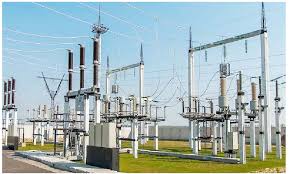A coalition of civil society organisations and energy experts has called for the establishment of a robust legal and regulatory framework to attract investment into Nigeria’s renewable energy sector, particularly at the sub-national level.
This call was made during a community and civil society engagement session on the draft Cross River State Electricity Bill 2025, held recently in Abuja.
Speaking at the event, Michael Keaniani, Country Manager of Natural Justice, highlighted the importance of legal clarity, consumer protection, and enabling policies as critical factors in driving private sector interest in the energy sector.
“We want to see a legal and regulatory framework that incentivises investment in the energy sector, particularly in renewables. Investors seek certainty in the law. If the legal environment is conducive, they will come,” said Keaniani.
He commended the draft Cross River Electricity Bill for its innovative provisions, describing it as a step in the right direction towards energy sector reform in Nigeria, especially in light of the recent decentralisation of electricity regulation to state governments following the 2023 Constitutional amendment.
However, he also raised concerns over gaps in the draft law, especially relating to consumer rights and rural electrification, noting that many consumers—particularly in underserved areas—still bear the burden of financing basic power infrastructure.
“Electricity consumers in both rural and urban areas are too often forced to pay for transformers, wiring, and energisation. This bill must have strong consumer protection clauses to address that injustice,” he added.
Natural Justice said it had conducted a review of the bill—currently before the Cross River State House of Assembly’s Committee on Power and Electricity—and submitted its recommendations. These were drawn from community inputs, technical experts, and advocacy organisations engaged in the state’s energy transition.
One key recommendation is for the bill to provide greater policy clarity on inter-state electricity trading, particularly in the context of the newly decentralised power sector.
While the bill includes provisions to support electricity generation, distribution, and possible trading beyond state boundaries, Keaniani warned that constitutional grey areas could hinder the full implementation of these plans unless addressed through coordinated federal-state policy alignment.
Another major highlight of the engagement was the need to prioritise rural electrification. Stakeholders urged lawmakers to ensure that affordable and sustainable energy is made accessible to entire communities, not just urban centres.
“If rural electrification is not embedded into the bill as a top priority, we risk widening the energy access gap even further,” Keaniani cautioned.
In response, the Chairman of the House Committee on Power and Electricity, Hon. Francis Obang, assured participants that the House is committed to passing a bill that will transform the state’s power sector.
“One of the major challenges we face is the vandalisation of power infrastructure. This bill includes provisions to address that. Once enacted, it will ensure that offenders are prosecuted and that communities play a greater role in safeguarding these critical assets,” Obang said.
He also acknowledged the technical input from Natural Justice and reiterated that the Assembly would continue stakeholder engagement to ensure the final version of the bill reflects the needs of Cross River residents.
The draft Cross River Electricity Bill, which runs over 100 pages, is expected to serve as the legal backbone for the state’s energy sector, positioning it for improved governance, investment, and off-grid generation following Nigeria’s move away from a centralised electricity regulation system.
The push for a solid legal framework comes at a time when global interest in Africa’s renewable energy market is rising, and states are being encouraged to play a more proactive role in attracting climate-smart energy financing.
